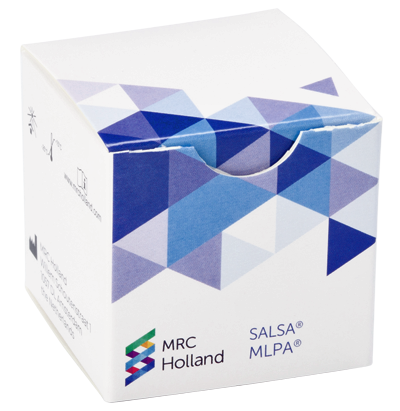P075 TCF4-FOXG1

SALSA MLPA Probemix P075 TCF4-FOXG1 detects copy number variations in the TCF4 and FOXG1 genes.

Contents: 50 MLPA probes, including 35 probes for the TCF4 region (covering all TCF4 exons), and 5 probes for the FOXG1 region.

Tissue: human genomic DNA.

Application: research on Pitt-Hopkins syndrome (PTHS).

For research use only (RUO). Not for use in diagnostics.

